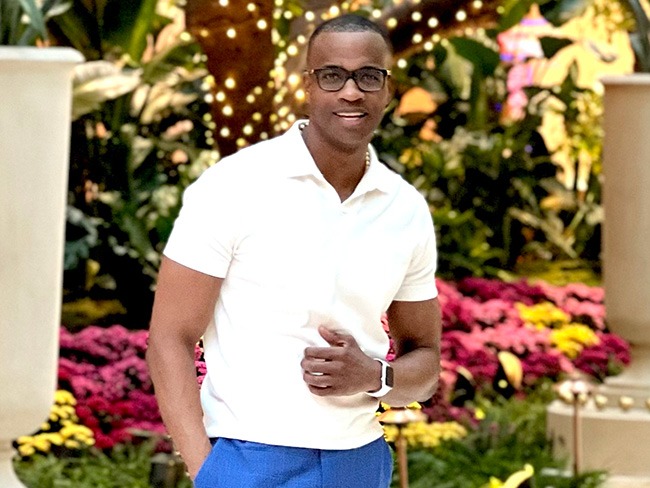Joel Castón
"Anytime a member of a society is not afforded the right to express his or her opinions by way of the democratic process, we can not achieve the ideals of democracy."
Related to: Sentencing Reform, Voting Rights

Joel Castón is a formerly incarcerated Washingtonian, who also serves as a mentor, writer, and activist. After being convicted of murder at age 18, Castón underwent a remarkable transformation, driven by mentorship, faith, and education. He is one of the founding mentors in the Young Men Emerging Unit at the DC Jail, a program that provides recently incarcerated people between the ages of 18 to 25 with mentorship, job training, and educational programming. Passionate about finance, Castón has several self-published books and hopes to eventually become an investment advisor and professional trader, with a YouTube channel for demystifying the markets. He said he felt ready to return home since at least his 18th year of incarceration, when he’d been imprisoned for the same number of years that he’d been free. In 2021, Joel was released from prison after 27 years. Before his release, he noted: “I am a middle-aged guy. I’m a dad, I’m a grandfather—I have two grandchildren. I have gray hair at my temples, I don’t think like that 18-year-old guy that once had a mindset that I completely reject. I have changed. I am deeply remorseful…. I have a proven track record of rehabilitation and demonstrated remorse. Individuals like myself, they deserve an opportunity to present a colorful argument of why they deserve their freedom.”
Castón was raised in a family and community that faced major obstacles. His father and sister struggled with substance use problems, and he recalls many in his community treating their trauma with drugs. Raised by a single mother and later by his sister, Castón and his cousin became active in the drug market by 6th grade, despite its harms on his family and community. His experiences have convinced him of the need to invest in “no entry” programs and services to prevent imprisonment, rather than just “re-entry” to prevent reimprisonment. For him, this would have included wraparound services for his family. He also points to the counseling services that victims need, and that he himself needed to cope, at age 18, with a sentence of 30 years to life with the possibility of parole. “Faith gave hope to my despair,” Castón has written.
Castón was delighted by the news of the Incarceration Reduction Amendment Act (IRAA), even though it did not apply to him since he committed his crime 33 days after turning 18. The expansion of the law to those who committed their crime under age 25 would allow him to petition for resentencing—but before the law went into effect Castón became one of the lucky few to be granted parole. Referencing his experience as a DC resident who is eligible for a second look and who has spent time in federal facilities around the country, Castón says: “I’m grateful that we have it in DC but what about the guys from New York? What about the people from North Carolina? What about the people from Puerto Rico? What about the people from Minnesota? What about the guys in California? What about the guys in Louisiana? What about all these places I’ve been at and they don’t have nothing in place? But I’ve been with these guys, I can’t forget my brothers and sisters still trapped behind prison doors.”
With his longtime friend Tyrone Walker—an IRAA beneficiary who is now with the Justice Policy Institute— Castón continues to call for curbing excessive sentences, noting that they disproportionately affect Black men like themselves. With Michael Woody, another founding mentor of the Young Men Emerging Unit, they’ve written a report about how the DC program, inspired by Connecticut’s, can serve as a model for the country. In the Washington Post, Castón and Walker have written: We are proud that we’ve helped create this program, and we hope the approach will also move beyond the walls of the DC jails and into the community.
In June 2021, he was elected as an advisory neighborhood commissioner (ANC), becoming the first incarcerated individual elected to public office in Washington D.C. In 2023, after serving his two year term as ANC, he was appointed to the D.C. Sentencing Commission.
Castón once asked his own mentor why he did so much for others and was told that he was paying his dues. It’s a philosophy that Castón now shares.


